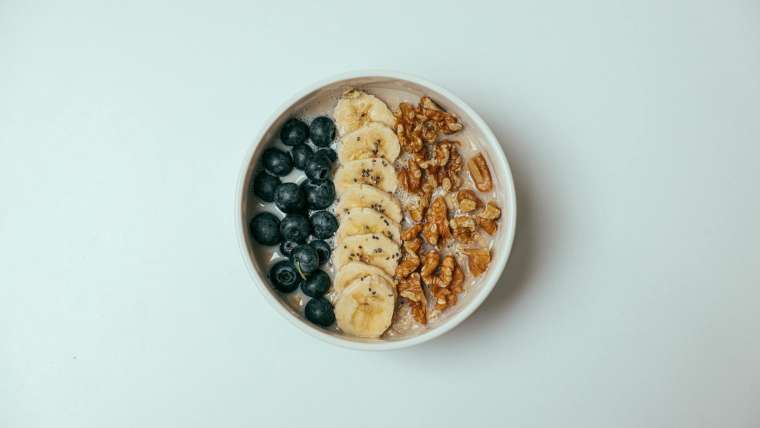Going Keto? What You Should Know
The ketogenic diet, or keto diet, has been gaining popularity in recent years for its potential health benefits and weight loss effects. If you are considering going keto, here is what you should know before making the switch.
What is the Keto Diet?
The keto diet is a high-fat, low-carbohydrate diet that involves drastically reducing your carb intake and replacing it with fat. This reduction in carbs puts your body into a metabolic state called ketosis, where it becomes more efficient at burning fat for energy.
The key principle of the keto diet is to consume high amounts of healthy fats, moderate protein, and very low carbohydrates. By doing so, the body shifts its primary fuel source from glucose to fat, leading to weight loss and other potential health benefits.
Some common foods to avoid on the keto diet include sugary treats, grains, fruits high in sugar, and starchy vegetables. Instead, focus on consuming foods rich in healthy fats like avocados, nuts, seeds, and fatty fish to maintain ketosis and promote fat burning.
Benefits of the Keto Diet
-
Weight Loss: One of the main reasons people try the keto diet is for weight loss. By reducing your carb intake, your body burns fat for fuel, leading to weight loss. Additionally, the high-fat content in the diet can help you feel full and satisfied, leading to reduced calorie intake.
-
Improved Energy Levels: Many people report feeling more energized and focused on the keto diet due to the steady supply of energy from fat. By eliminating blood sugar spikes and crashes associated with high-carb diets, you can experience more stable energy levels throughout the day.
-
Better Blood Sugar Control: The keto diet can help stabilize blood sugar levels, making it a beneficial option for those with diabetes or insulin resistance. By reducing carbohydrate intake, you can lower blood sugar levels and improve insulin sensitivity, which may help manage or prevent these conditions.
-
Reduced Inflammation: Some studies suggest that the keto diet may help reduce inflammation in the body, which can lead to improved overall health. Chronic inflammation is linked to various health issues, including heart disease, cancer, and autoimmune disorders, so reducing inflammation through diet can be beneficial.
What to Eat on the Keto Diet
When following the keto diet, your meals should focus on high-fat, moderate-protein, and low-carb foods. Here are some foods to include in your keto meal plan:
-
Healthy Fats: Avocado, olive oil, coconut oil, and nuts are all great sources of healthy fats. These fats provide essential nutrients and energy while keeping you feeling full and satisfied.
-
Protein: Include sources of protein such as meat, fish, eggs, and tofu in your meals to support muscle growth and repair. Protein is essential for maintaining lean body mass and keeping you feeling full between meals.
-
Low-Carb Vegetables: Leafy greens, cauliflower, broccoli, and zucchini are all low in carbs and can be included in your diet. These vegetables provide essential vitamins, minerals, and fiber without causing a significant impact on blood sugar levels.
Potential Side Effects
While the keto diet can have many benefits, it can also have some potential side effects, especially when first starting. Some common side effects of the keto diet include:
-
Keto Flu: Many people experience flu-like symptoms when first starting the keto diet, such as fatigue, headaches, and irritability. This is often due to the body adjusting to the new way of eating and can be managed by staying hydrated and ensuring adequate electrolyte intake.
-
Digestive Issues: Some people may experience digestive issues such as constipation or diarrhea as their body adjusts to the new way of eating. Increasing fiber intake, staying hydrated, and incorporating probiotic-rich foods can help alleviate these symptoms.
-
Nutrient Deficiencies: Since the keto diet restricts certain food groups, it is important to ensure you are still getting all the necessary nutrients through supplements or carefully planning your meals. Consider incorporating a variety of foods and consulting with a healthcare professional to prevent nutrient deficiencies.
Is the Keto Diet Right for You?
Before starting any new diet, it is essential to consider if it is the right fit for you and your lifestyle. The keto diet may not be suitable for everyone, especially those with certain medical conditions or dietary restrictions. It is always a good idea to consult with a healthcare provider or dietitian before making any significant changes to your diet.
In conclusion, the keto diet can be an effective way to lose weight, improve energy levels, and enhance overall health. However, it is essential to understand the potential benefits and side effects before starting. By following a well-rounded meal plan and consulting with a healthcare professional, you can determine if the keto diet is the right choice for you.
FAQ About the Keto Diet
What is the Keto Diet?
The keto diet is a high-fat, low-carbohydrate diet that involves drastically reducing your carb intake and replacing it with fat to put your body into a metabolic state called ketosis.
What are the Benefits of the Keto Diet?
- Weight Loss
- Improved Energy Levels
- Better Blood Sugar Control
- Reduced Inflammation
What Should I Eat on the Keto Diet?
Focus on high-fat, moderate-protein, and low-carb foods such as healthy fats, protein sources like meat and eggs, and low-carb vegetables.
What are the Potential Side Effects of the Keto Diet?
- Keto Flu
- Digestive Issues
- Nutrient Deficiencies




